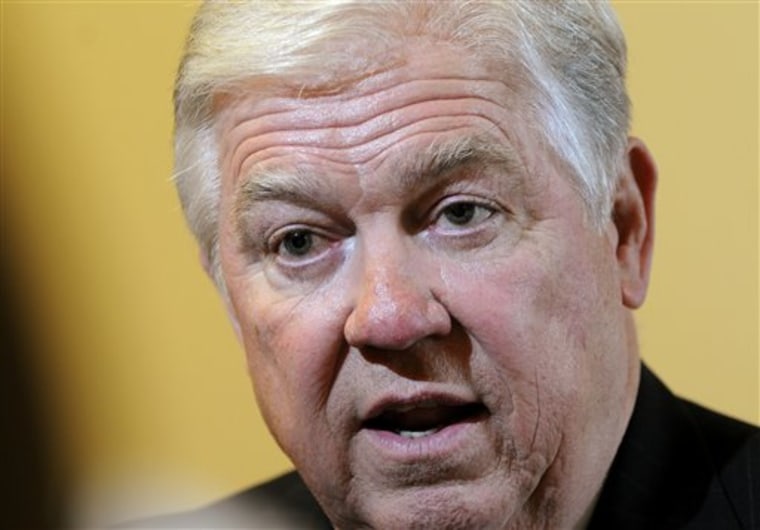Though he's faced some criticism on such matters, Mississippi Gov. Haley Barbour says he carries no political baggage because of his positions on racial issues.
The issue flared as recently as last week, when Barbour declined to denounce an effort by a group pushing for a license plate in honor of confederate Gen. Nathan Bedford Forrest, a leader of the Ku Klux Klan. Barbour says the proposal was never going anywhere.
"I said accurately this is not going to happen," Barbour said in an interview with The Associated Press. "The bureaucracy denied it, the legislature won't pass it and if the legislature passes it, it won't become law because I won't sign it."
Barbour says he denounces the Klan, but was asked to denounce a specific person.
"I don't denounce individual people whether they've been dead 100 years or not," said Barbour.
He says he was a child during much of the Civil Rights movement and that people should focus on the progress that's been made throughout the South.
Walking a tightrope
Barbour was meeting GOP activists as he tests the waters for seeking the Republican presidential nomination.
When questioned about the racial history of Mississippi, Barbour walked a tightrope by seeking to distance himself from some of the most egregious violence and arguing he had only a passing experience with segregation.
"I was a school kid during most of the civil rights movement, as we refer to it today, playing Little League," said Barbour.
He attended the University of Mississippi and talked of a friendly relationship with an African-American student.
"We had a very friendly relationship," said Barbour. "It was a lot harder for her to be there than me and I'm much more aware of that now than I was then."
In addition to the latest flap, Barbour declared last April as "Confederate Heritage month" a move that drew sharp criticism from civil rights activists.
Emphasizing Mississippi's progress
During the interview, Barbour stressed the progress that's been made in Mississippi, including a planned reunion of Freedom Riders who battled for civil rights in 1961 in the state.
"In May we're having a celebration, a reunion of the Freedom Riders," said Barbour.
Even in telling that story, Barbour was forced to acknowledge the state's history.
"Instead of putting them in the state penitentiary, which is what happened in 1961, we're going to have a reception for them at the governor's mansion," said Barbour. "We have made a tremendous amount of progress in my lifetime."
Barbour's history could be a particularly sensitive issue should he decide to seek the GOP nomination to run against the nation's first African-American president.
Barbour argued that the nation is changing, and his southern roots offer little baggage.
"I think there's less regionalism in America than there's been in my lifetime," said Barbour. "I think it's obvious to everyone that he different parts of America are becoming more alike and this has been an evolutionary thing since the end of World War II at least."
Barbour spent his day meeting with key activists to make the case that he's very serious about the potential of seeking the Republican presidential nomination.
"I'm telling people I'm thinking about running for president and won't make a decision until April, and I've asked them to keep their powder dry until I make a decision," said Barbour.
Barbour said he won't make a decision until April because that's when his state legislature will adjourn.
"I don't want to walk away from one job I've got to run for the next one," said Barbour.
